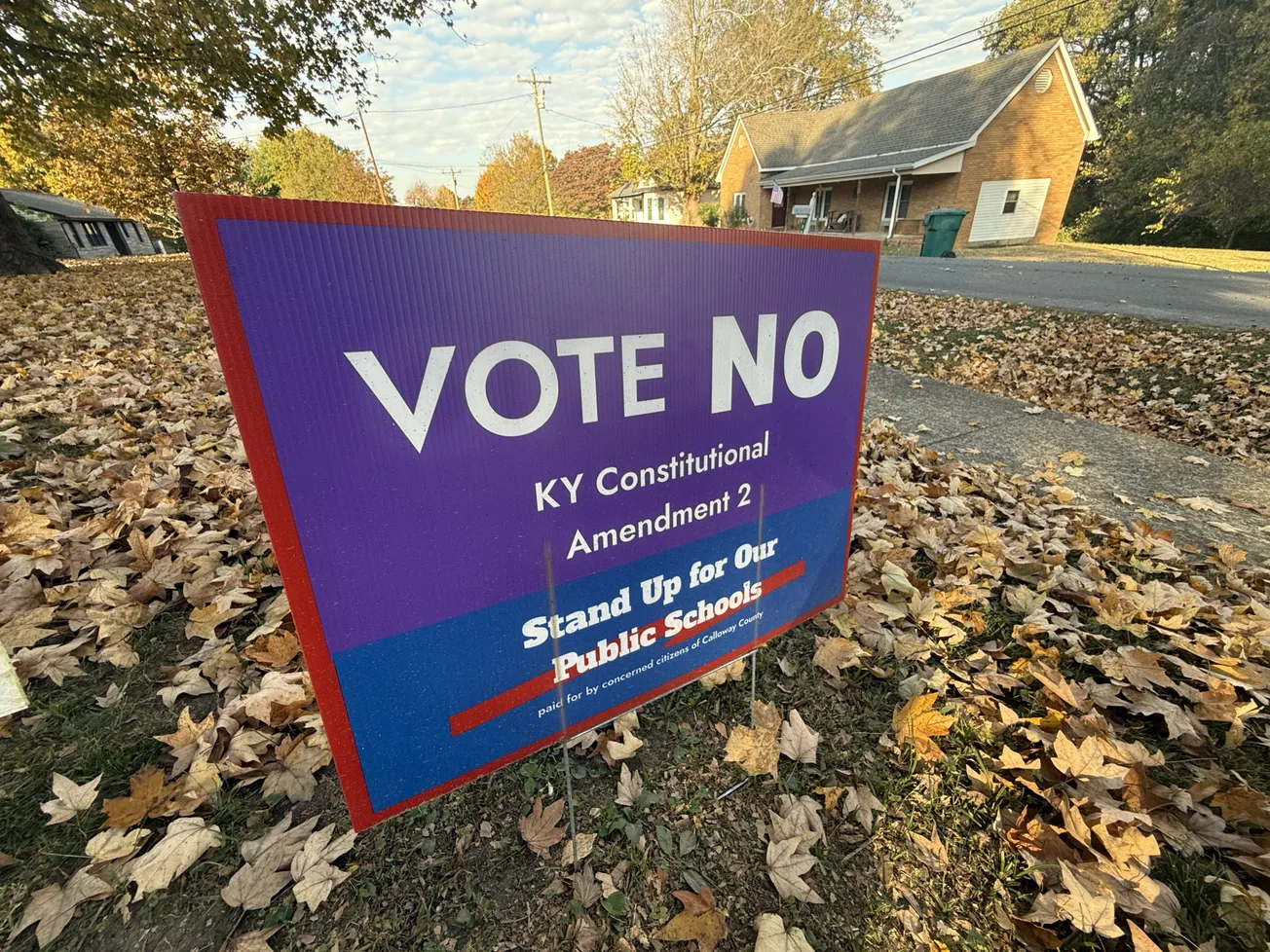Amendment 2 supporters say they just want to give parents or guardians a choice of where to send their kids to school.
They already have a choice. They are free to enroll their children in public or private schools. They can even homeschool the kids.
“Choice” really means “vouchers” – in effect, publicly-funded coupons that parents or guardians can use to send their children to private schools, most of which are religiously affiliated in Kentucky.
Amendment 2 is hardly unique. Republican governors and state legislators across the country are pushing voucher programs. One of the best explanations of vouchers I’ve seen is an analogy posted on X, formerly Twitter, by a teacher who goes by “KD:”
“I want to learn to play golf, and the public course is offering free lessons. I want a more exclusive experience, though, so I want to learn at a private country club. I also want the public course to pay for my membership. Now you understand how school vouchers work.”
Like the U.S. Constitution, the Kentucky constitution separates church and state. Our state charter says public funds can only be used to support public schools and not be spent on “any church, sectarian, or denominational school.”
As it appears on the ballot, Amendment 2 would rewrite the constitution to permit the General Assembly “to provide financial support for the education of students outside the system of common schools.” The amendment doesn’t say how, and critics charge that the wording is deliberately vague.
If the amendment passes, the Republican Senate and House supermajorities — which drafted the amendment and got it on the ballot — will quickly approve a voucher program which, by its very nature, will drain vital funding from public schools.
A report by the Kentucky Center for Economic Policy, a think tank, estimates “a program proportional to what Florida, the largest state program, has in place would cost $1.19 billion annually from the Kentucky state budget. That equals the cost of employing 9,869 Kentucky public school teachers and employees.”
Nine out of 10 school age children in Kentucky go to public schools, according to Eddie Campbell, president of the Kentucky Education Association. (Not coincidentally, the most zealous voucher supporters in Kentucky and elsewhere are as vehemently anti-union as they are anti-public education.)
“Instead of focusing on our teacher shortage, our support professional shortage, our bus driver shortage, and supporting our public schools, we have a constitutional amendment that would take public dollars and send them away to unaccountable private schools.” Campbell added that public schools “have to account for every dollar that comes in.”
I haven’t seen any polls on how Kentuckians are leaning on Amendment 2. Though Donald Trump is expected to again win Kentucky in a blowout, “vote no” signs outnumber “vote yes” signs here in the Jackson Purchase, arguably the reddest region in Republican Red Kentucky. Sometimes, “no” signs sprout in yards next to Trump signs.
The Calloway County Democratic Party teamed up with a group called Concerned Citizens of Calloway County to distribute 300 “no” signs locally. We have one in our Carlisle County yard.
Most Kentuckians — including my wife, our son, and me — went to public schools (the Craigs three all the way through college). We treasure our public school education. We want Kentucky’s youth to have the same opportunities at a quality education that we had — opportunities that will be seriously diminished if Amendment 2 passes.
The nonpartisan League of Women Voters is among many groups and organizations that oppose Amendment 2.
“Kentucky public schools provide ... equal access for 650,000 students,” wrote League President Jennifer A. Jackson, M.D., in a Lexington Herald-Leader op-ed. “Public schools provide education to all students regardless of their religion, family income, learning ability, or academic performance. They also accommodate students who move into an area after the school year begins, making them a valuable investment for ensuring education access for everyone.
“Private schools do not provide equal access to all students. Many limit admissions based on a family’s faith, or its ability to pay tuition, or a student’s learning needs or grade-point average or test scores. Many also stop admitting students when they reach the enrollment they planned for, or pass the application deadline listed in their brochures.
“Since Amendment 2 does not build free education with equal opportunity, the League concludes that private schools are not where Kentucky should invest public resources.”
The Craigs three have concluded likewise. We will be voting no on Amendment 2.
--30--
| Tip Jars |








